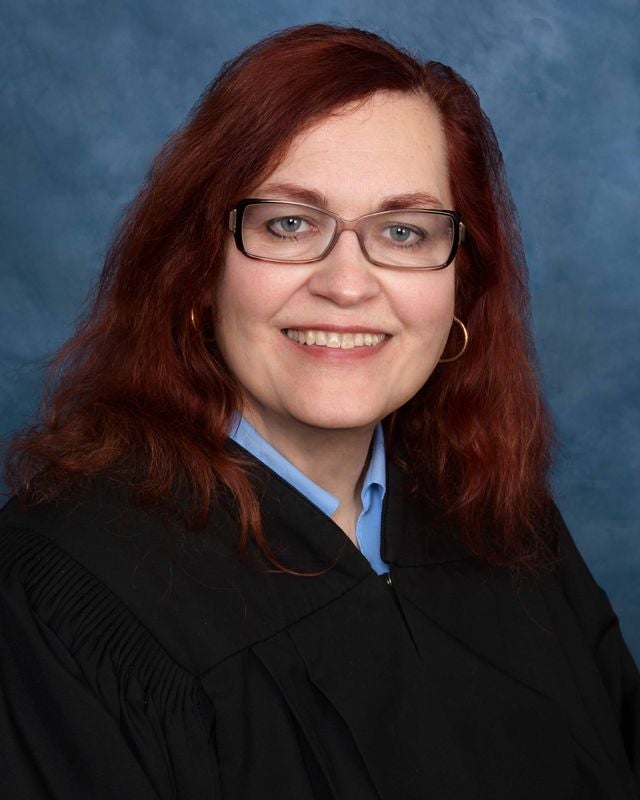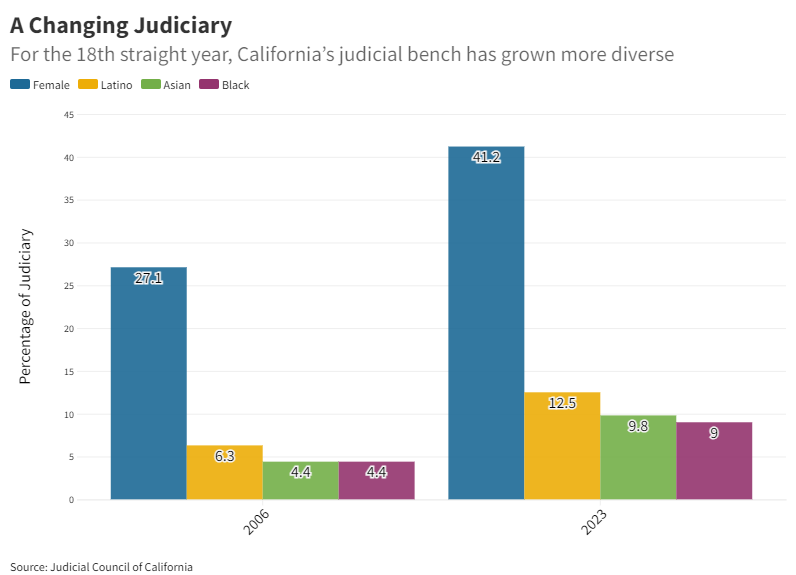
Celebrating LGBTQ+ Diversity in the California Courts: Alameda County Judge Victoria Kolakowski
This June, California courts and the Judicial Council of California join the nation in recognizing LGBTQ+ Pride Month. We've spoken with a few of our LGBTQ+ identifying judges and justices about their experiences serving on the bench and how increasing diversity serves the courts and the public.
Elected by voters to the Superior Court of Alameda County in 2011, Judge Victoria Kolakowski is the first transgender judge in California and the first transgender person to serve as a trial court judge of general jurisdiction in the United States. Prior to her election to the bench, Judge Kolakowski served as an administrative law judge with the California Public Utilities Commission. She is a former president of the International Association of LGBTQ+ Judges.
Following are video highlights and excerpts from a conversation with Judge Kolakowski:
*The text of the interview has been edited for length and clarity.
On the importance of diversity in California courts:
"It’s important for people in the community to see people like themselves, in the positions that are making these life-altering decisions and to recognize there are people like them [in the legal system].
It's also very important—and this is something that I did not understand as much before I became a judge—to be inside the [judicial] branch and help bring different perspectives to conversations. When there's so much that we do as judges in terms of planning, all the work that the Judicial Council does and various committees do, I think it's important that different perspectives be included, and that’s something I didn't actually appreciate as much before I became a judge. Being part of a group of people with diverse viewpoints, backgrounds of legal experiences, and life experiences helps us as a whole, as a branch, to be better, to do better, and to be better judges."
On being the first transgender trial court judge in California:
"One of the reasons why I ran [for trial court judge] was that it was important for people to see [openly trans] people like me in a position like this. Transgender issues and people weren't as well-known as they are now. It’s important that people in the system see that we are more than just sex workers and victims of violent crimes but we are, as a community, so much more. It’s important for people to see and understand that we can be judges; we can be all sorts of other things. It’s important for people to see that this is an option if it’s something that they could aspire towards, and I've been truly amazed and blessed by the number of people who've told me that they were inspired by me being a judge to enter the legal profession, or to seek public office because they knew that I had achieved this.
The most humbling experience I had was a visit to an attorney's office a couple of years ago. The attorney brought me over to a workstation where his paralegal, who is also transgender, had two framed pictures on the wall. One was of Harvey Milk and the other was of me. I was blown away knowing that my being here and what I do touched somebody so much and that is very meaningful to me. I don't think that we appreciate sometimes how much it means to people in the [LGBTQ+] community to see themselves reflected in those places. From that perspective, I feel like it's been a great blessing for me to know that I impacted people that way."
On role models and mentors going into the legal profession:
"As the first openly transgender trial court judge, I don't have others that I could look back and say this person inspired me. What had inspired me are great attorneys in the past who've managed to break into the legal community and achieve great things. I was fortunate to meet Thurgood Marshall while he was still alive. He was a role model for me and looking at other people who broke through and made a difference has been inspiring to me. I didn't have a particular mentor, but I wish I had and I'm trying to be one for other people."
On access to justice:
"I have served on the Judicial Council's Advisory Committee on Providing Access and Fairness and also served as a member of the California Access to Justice Commission. I've done a lot of educational work with CJER (Center for Judicial Education and Research) about trying to increase [awareness] and provide educational materials for judges on how to interact with transgender and nonbinary people in the courts. Our branch makes efforts in so many ways to try to increase diversity on the bench and to increase access to the courts.
I try to use plain simple language that everybody can understand and I think that's an important part of access as well. I grew up in a poor blue-collar working family who didn't understand the law. I'm the first person in my family who went to college. It's important to remember that people are scared—not everybody in the [court]room understands what’s going on, as they don't know the [legal] language being used. I try to make sure that the prospective jurors, the litigants, and everybody feels at ease—part of that desire comes from my personal awareness and experience being part of a group where this doesn't come to me by blood. I come from a different place and it's important that we have people in our system who understand how it feels like being left out, not understanding what's happening around them. The truth is that the courts need to be for everyone, and that's what we as judges should be."






